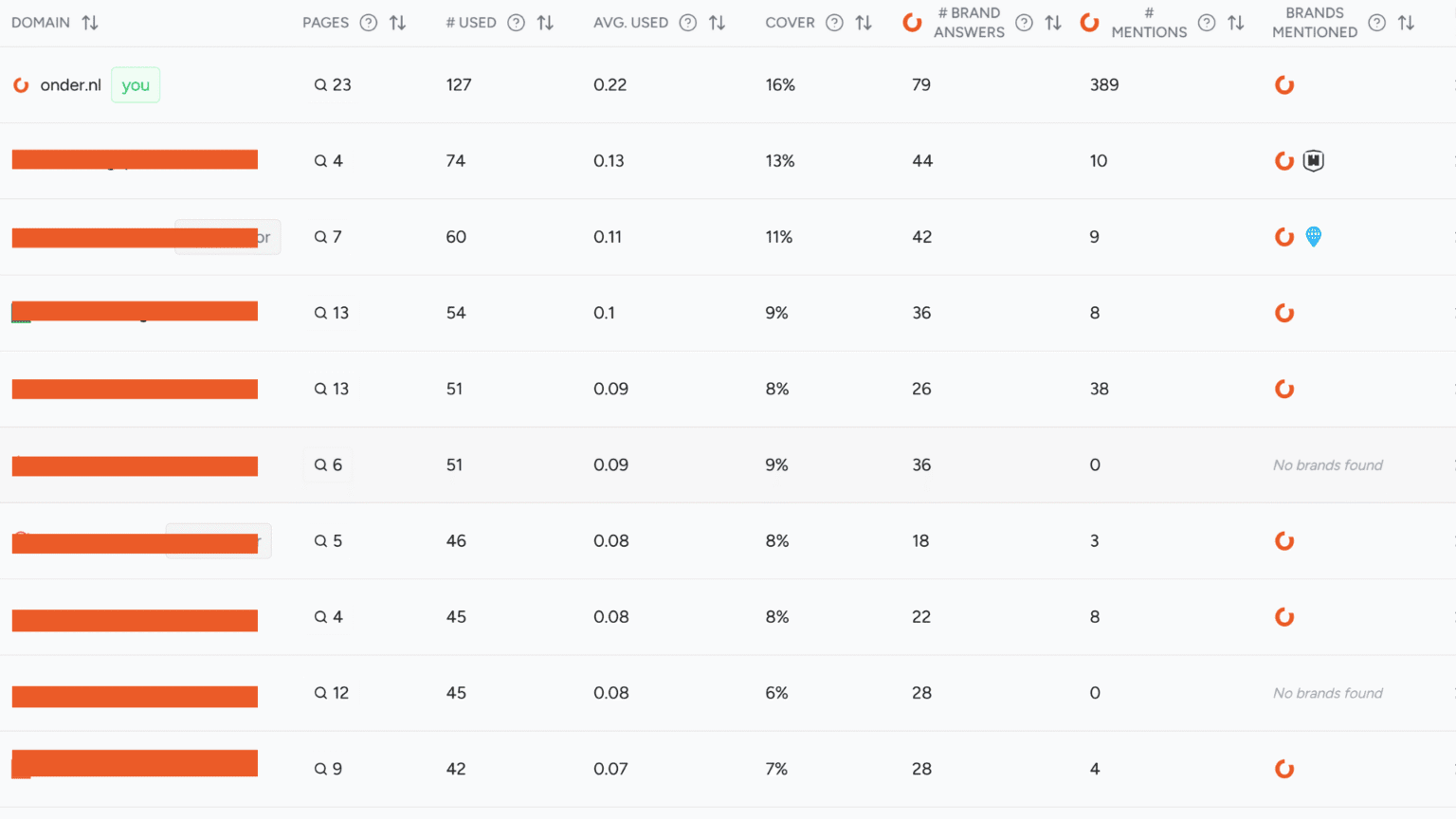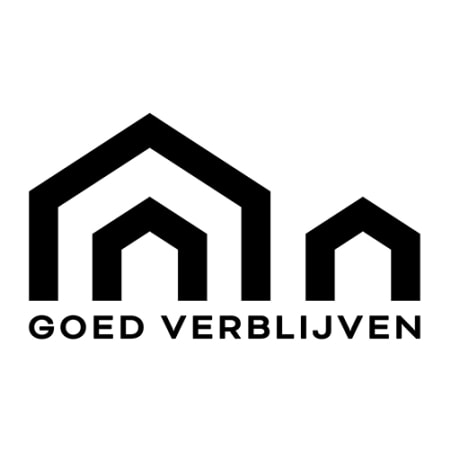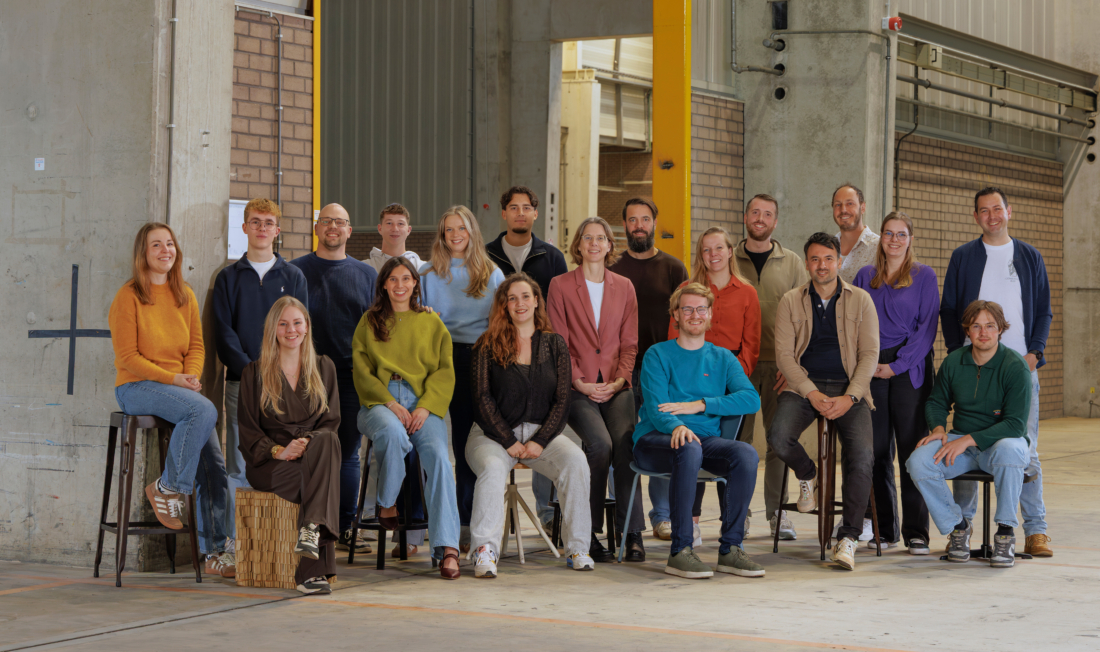Disclaimer: Terms like LLMO, GEO and AEO are used in the market for a concept we call 'AI SEO'. These different abbreviations essentially refer to the same thing: optimisation for answering engines or AI search engines, such as ChatGPT. With us, AI SEO is not a separate service, but a fixed part of every SEO journey. In fact, we optimise for any search query and any type of search result - whether on Google, ChatGPT or other platforms.
Table of contents:
What is generative engine optimisation (GEO)?
GEO is part of AI SEO and stands for Generative Engine Optimization. GEO ensures that your brand is mentioned in responses from AI systems such as ChatGPT, Gemini or Google's AI tab. Whereas SEO is about findability in search engines, GEO is about visibility in the answers themselves.
This is because AI does not provide a list of links, but a complete answer. The goal of GEO is for your product, service or brand to appear in that answer.
Instead of keywords, GEO revolves around prompts: the questions people ask AI. Those questions are often more personal and specific.
Think about: "What is a good coffee machine for a small office without fixed water connection?" Instead of: "Best coffee machine".
Therefore, GEO requires content that is clear, contextual and well-structured. This makes it easier for an AI model to understand your information and incorporate it into the response.
Why is GEO important?
GEO (Generative Engine Optimisation) helps your brand become visible in responses from AI platforms such as ChatGPT, Gemini, Bing AI or Perplexity.
The hype around AI is now behind us. We are now in a phase where the use of AI in search is increasing, confidence is growing and the technology is maturing. As a result, Google is getting stiff competition. More and more people are searching via AI instead of a traditional search engine.
This has major implications for businesses. Because those who want to stay visible need to score in search results and appear in the answers provided by AI.
AI users ask different questions than in Google. They are not looking for a list of links, but want clear, personalised answers straight away. AI models deliver those answers based on existing content. That's where you want to be with your brand.
With GEO, you make sure that happens. For example, because:
- you are named as source in an AI answer;
- your brand name appears in the text of the answer itself.
GEO is not about keywords, but about content that is contextually strong and trustworthy, content that AI recognises as valuable and therefore uses. That way, you are visible at the moment your target audience is orienting, and because AI presents your brand as a trusted source, your credibility grows too.
The advantages of GEO at a glance
- Greater reach: with GEO, your content becomes visible outside traditional search engines. Optimising for AI increases your reach and attracts a wider audience
- Better user experience: GEO allows AI to process your content quickly and in a personalised way. This provides immediate, relevant responses, leading to increased user satisfaction and loyalty.
- Competitive advantage: If you start GEO now, you will take a competitive edge. Your brand will be seen as innovative and progressive, and gain a strong foothold in the AI landscape.
- Greater authority and reliability: Content included by AI in responses strengthens your credibility. By focusing on recognisable subjects (people, products, locations, themes), you ensure that your brand is correctly represented and recognised as a trusted source.
- Insights from data: GEO gives you access to valuable data on how AI platforms are using your content. These insights help you refine your strategy, better meet the needs of your target audience and communicate more effectively.
- Thinking ahead in SEO: Search technology is evolving rapidly. With GEO, you make sure your marketing strategy grows with you and remains effective - also in the future. You thus protect your brand's online visibility and competitiveness.
GEO and SEO: what are the differences?
SEO and GEO share the same goal: making sure your brand is visible online. But they do so in a different way.
- SEO targets classic search engines such as Google.
- GEO is meant for AI platforms such as ChatGPT, Gemini, Perplexity and Google's AI tab. These do not show links, but provide an answer immediately.
What do they have in common?
- Visibility and findability: Both methods aim to maximise online visibility. You want to be found where your target audience is actively searching - via Google or via AI platforms like ChatGPT.
- Use of keywords: SEO and GEO both use keywords. In GEO it is more about the context of queries (prompts), in SEO it is about exact matches.
- Structure and strategy: Good content only works with a logical structure and a well-thought-out strategy. Both techniques require clear structure and clear language.
- User experience: Content must be easy to find, understandable and accessible. This applies to the Google bot as well as AI models that process information.
- Relevant and valuable content: GEO and SEO require content that matches user demand. That content must be reliable, well onderbuilt and meet the E-E-A-T principles: experience, expertise, authority and reliability.
- Data and analysis: In both cases, you use data to better understand what works. That helps refine your strategy, analyse behaviour and track trends.
- Technology: Technical SEO aspects such as fast loading time, mobile-friendliness and clear HTML structure are indispensable. The content must be easily readable and indexable by search engines and AI systems.
- Trust and authority: Content must be credible. You achieve that with reliable sources, strong content and references. SEO does that in part with linkbuilding, GEO with citations in AI answers.
- Moving with technology: Both SEO and GEO are constantly changing. Success requires a flexible approach that responds to new algorithms, tools and user behaviour.
What is the difference?
- Links vs Answers: From SEO, you want people to click on a link to your site. With GEO, you want your content or brand to appear directly in the AI response.
- Keywords vs Context: With search engines like google, one term is often googled and with LLMs, the user often enters a prompt with more context.
- Pages vs Synthesis: SEO scores with loose pages.
GEO looks at how AI merges information from multiple sources to one answer.
- Technique vs Construction: SEO uses structured data (such as schema.org).
GEO requires texts that are logical and well-organised with headings, lists and FAQs.
- Match vs Interpretation: SEO searches for keyword matches.
GEO looks at the intention behind the question, and delivers content to match.
- SEO measurement vs GEO insights: SEO measures with keyword positions and traffic.
GEO looks at entries in AI responses, citations and traffic from AI platforms.
How do generative search engines work?
Generative search engines do not provide a list of links, but build a complete answer themselves. They combine information from different sources to generate a clear, coherent result. Only content that is reliable, relevant and well-structured stands a chance of being included in them.
This is done in seven steps:
- Collecting data
The AI extracts information from websites, blogs, databases and other sources.
- Preparing data
Incorrect or unusable data is cleaned up and put into the right form.
- Model training
The AI model learns to recognise language and patterns through machine learning.
- Fine tuning
The model is being optimised to better respond to specific queries.
- Generate response
The AI combines relevant information into a comprehensible and complete answer.
- Evaluate and improve
The quality of the answer is assessed. Feedback makes the model smarter.
- Setting priorities
The AI chooses which sources are most reliable and relevant to the query.
What does this mean for your brand?
Only content that is current, accurate and clearly structured is eligible for inclusion in AI answers. Therein lies the power of GEO: it makes your brand visible in the answers that matter.
We can measure how you perform against your competitors (see image on the right). Want to know more? Check out our LLM tracking page.
How Onder helps you with GEO
Onder helps your brand become visible in the answers of AI platforms such as ChatGPT and Gemini. We translate AI developments into a clear approach tailored to your content and target audience. We make sure your content stands out, is recognised and included in AI answers. This is how you stay relevant in a changing online world where AI determines what people get to see.
Starting with GEO yourself
Structure your existing content smarter and align it with how AI models formulate answers. Think clear headings, short paragraphs, bullet points and FAQs that respond to questions your target audience would ask AI. Focus not only on keywords, but especially on context and completeness. Make sure your content provides a clear, reliable and complete answer.
Start small. Choose one article or product page, for example, and build from there. That way, you work step by step on a solid content base. A base that makes your brand increasingly visible in generative search engines.
Download the free AI SEO checklist
Blogs about AI SEO
Frequently asked questions about GEO
1. What is the difference between GEO and SEO?
SEO focuses on findability in classic search engines such as Google. GEO focuses on visibility in responses from AI platforms such as ChatGPT, Gemini and Perplexity.
2. How do I know if my brand is already mentioned in AI answers?
You can test this by asking AI systems questions yourself that your target audience is also likely to ask. There are also tools that monitor AI mentions.
3. Should I replace all my SEO strategies with GEO?
No, SEO and GEO complement each other. SEO remains important for search engines, while GEO ensures your brand is visible in AI answers.
4. What kind of content works best for GEO?
Content that is clearly structured, reliable and contextually rich. Think FAQs, how-to's, guides and product comparisons.
5. Is GEO only relevant for large companies?
Definitely not. Smaller companies in particular can benefit quickly because they are more agile and can adapt their content strategy faster.
6. How quickly can I see results with GEO?
This varies by sector and question type. You often see after a few months that AI picks up your brand more often in answers, especially if your content is well aligned with your target audience's questions.
7. What does it cost to get started with GEO?
You can do the basics yourself by structuring your content smarter and adding context. For deeper strategies and monitoring, you can work with a specialist.















 Dutch
Dutch
 English
English